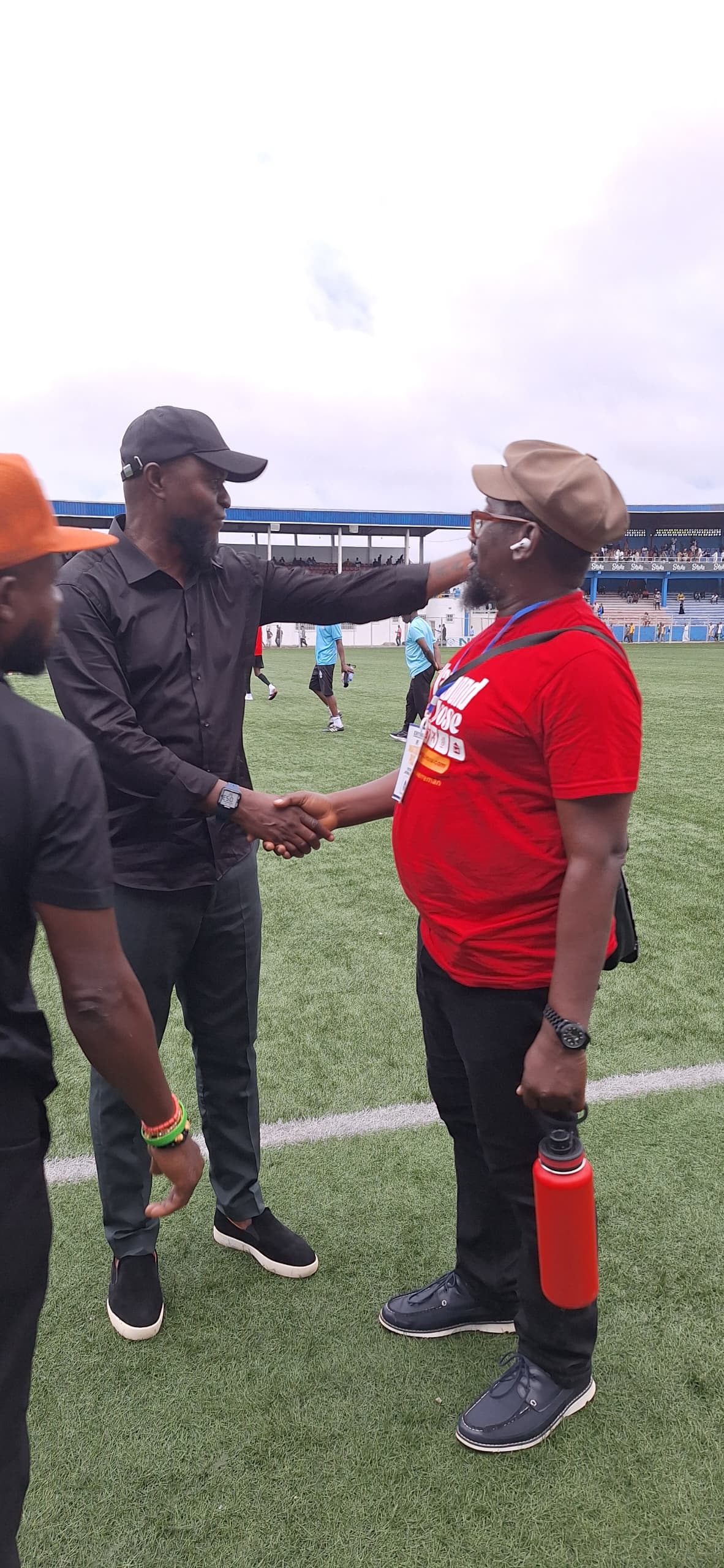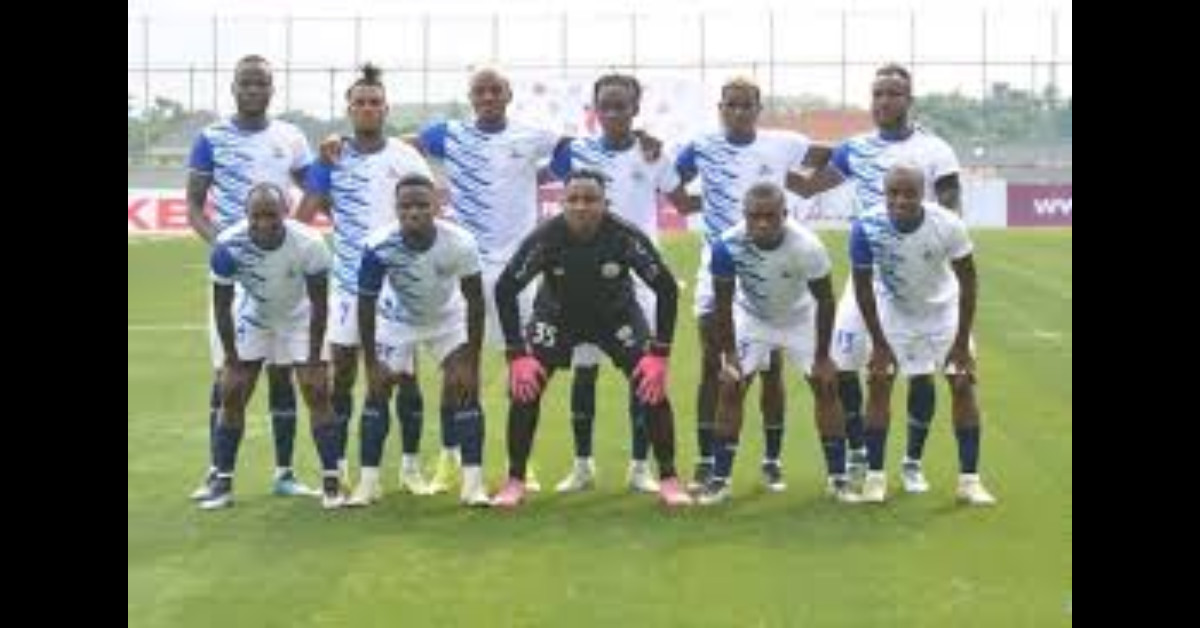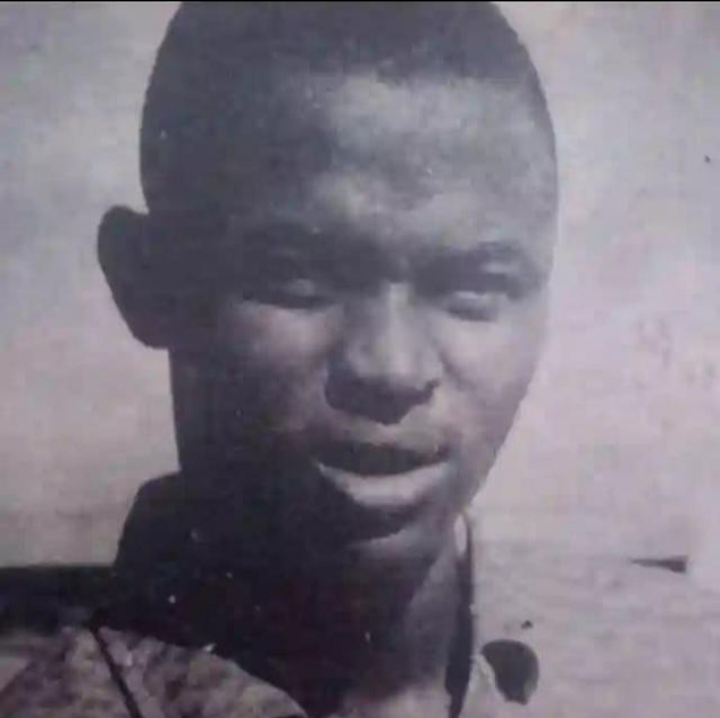Former Super Eagles striker, Brown Ideye, has been doing quite a bit of talking lately, and it seems podcasts just can’t get enough of him.
In recent appearances, he’s opened up about several issues—from how much he earned at Ocean Boys back in 2006 to his heartbreak over missing the 2014 FIFA World Cup. He also touched on a topic that hit a raw nerve: how much Enyimba players are given as feeding allowances during road trips.
During one podcast episode, Brown revealed that Enyimba players receive just ₦7,000 per day for feeding while traveling. He noted that the money is calculated from the day of departure but usually not for the return day after the match. Enyimba didn’t take kindly to that and fired back with a statement that seemed more like a hit piece than a clarification.
Feeding Allowance: What’s the Fuss?

Many Nigerians who don’t follow the local league closely have asked what exactly the “feeding allowance” is about. Here’s how it works: Most NPFL clubs have team camps where players stay during the season, and the club takes care of their feeding. But on road trips, the players are given a daily stipend to cater for their meals themselves.
That ₦7,000 feeding allowance is what’s causing all the noise.
As I type this from the rainy streets of Uyo, a decent meal in this city costs at least ₦4,000. So if Enyimba players get ₦7,000 daily, that barely covers two decent meals—if they’re lucky.
When I started working with Dolphins FC in 2003, the players were getting ₦4,500 daily for feeding. That was 23 years ago. By 2010, it had gone up to ₦6,000 per day. That was 15 years ago. Yet here we are in 2025, and Enyimba still expects professional footballers to survive on ₦7,000.
Enyimba’s History of Defensiveness
This is not the first time Enyimba has taken offense to fair criticism. I remember visiting Aba in 2019 to cover a continental game. The previous week, club chairman Felix Anyansi-Agwu had lamented about poor fan turnout.
His words: “How much is a bottle of beer? All over Aba, people are in bars drinking pepper soup and beer on Sunday evenings, but can’t buy tickets to watch Enyimba play?”
I felt his pain. Between 2002 and 2010, Enyimba’s stadium used to be packed. So what happened?
When I attended the very next match, I took photos of the embarrassingly empty terraces and wrote a piece about it. Rather than address the issue of fan apathy, Enyimba issued a press release attacking me. They even posted pictures from a different match, conveniently showing only the sections of the stands that had people.
That same energy has now been turned on Brown Ideye.
When Defending Yourself Becomes Self-Sabotage
After Brown’s podcast remarks, many waited to see Enyimba’s response. It shouldn’t have been complicated. They could have simply said: “Yes, the allowance is ₦7,000,” or “We don’t wish to comment on trivial matters.”
Instead, they came out swinging—only to end up punching themselves in the face.
Their statement highlighted that Ideye was paid ₦1 million per month, stayed in a ₦65,000-per-night hotel (which they called a luxury facility), and was flown to away matches “to honor his status.” They then slammed him for scoring only five goals, claimed he caused division in the team, and accused him of enjoying “VIP treatment” while keeping silent about welfare.
All of this, yet they said nothing about the core issue: the feeding allowance.
Breaking Down the Numbers
Let’s dig into their argument.
Enyimba claimed Brown scored only five goals in all competitions. But the stats tell a more nuanced story.
While Brown was at Enyimba, they played 23 league matches. He made the matchday squad in 12 of them, started only 4, came off the bench in 5, and was unused in 3. He scored 4 league goals in his 4 starts.
In the CAF Confederation Cup, he played in 3 matches, none as a starter, yet managed 1 goal—bringing his total to 5 goals from 4 starts and 8 substitute appearances, in all competitions.
Now compare that to Enyimba’s top scorer for the season, Ekene Awazie. He played 28 games (23 starts, 5 sub appearances) and scored 7 goals in total. So why is Ideye the villain?
The “Luxury” Illusion
Enyimba boasts of putting Brown in a ₦65,000 hotel. What were they expecting—him to stay in a short-time lodge? They say he flew to games, but guess what? He traveled by road with the team to Ilorin (an 18-hour journey!) and even went to Kano on the team bus. Where’s the luxury?
And what they conveniently omitted: Brown actually gave back to the team. Twice last season, he offered financial incentives to motivate the players. Before a match against Plateau United, he and Olorunleke Ojo promised ₦1 million for a win. They drew the game and still received ₦500,000 from him. He also stepped in during a friendly in December when morale was low due to unpaid wages.
Brown may not have filed formal complaints, but he put his money where his mouth was—something you don’t often see from players at any level.
This Isn’t Just About Enyimba
This issue goes beyond Enyimba. The truth is, many Nigerian clubs treat player welfare like an afterthought. Most top-tier clubs still pay ₦7,000 per day for feeding. Rivers United bumped it slightly to ₦9,000, but Lobi Stars? The players get N50,000 for a four day trip, making it N12,500 per day. This seems like the highest in the Nigerian League.
But is this enough?
Brown Ideye is not trying to burn down the house—he’s simply pointing out that the roof is leaking. Rather than attack him, the club should reflect. Players deserve better. And not just former internationals. All players.
Until we fix the basics—like feeding and accommodation—players will keep seeing the Nigerian league as just a stepping stone. Even if the next step is Kenya or Tanzania, they’ll still jump at it.
And who can blame them?









